Coronavirus: Cross-border Covid response 'lacks cohesion'
- Published
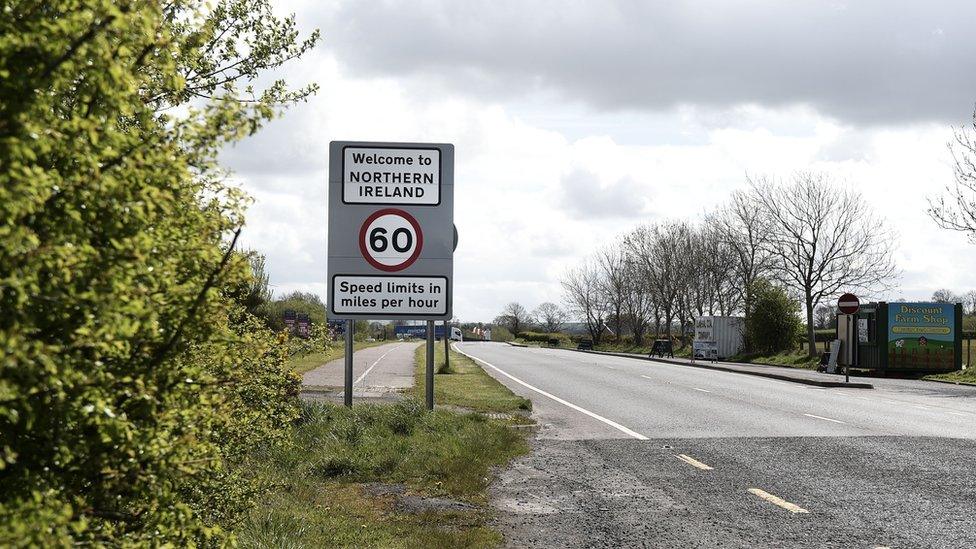
Thousands of people cross between NI and the Republic of Ireland daily
Cross-border efforts to curb high Covid-19 infection rates in communities along the Irish border have been described as "lacking cohesion".
A memorandum of understanding was signed in April formalising co-ordination during the pandemic between the Irish and NI governments.
Both governments say a "large degree of co-operation" is currently in place.
But SDLP MLA Colin McGrath said confusion has encouraged the virus' spread along the border.
"Our response should not know borders," he told BBC Radio Foyle.
During the initial outbreak of Covid-19, relatively similar restrictions were enforced across the island of Ireland.
But the approaches taken by the two governments have diverged during its second peak.
Mr McGrath, a member of Stormont's health committee, said border communities need "simple and easy to understand rules both north and south".
"Unfortunately, that has not happened. I have no doubt that confusion, that lack of cohesion has encouraged the spread of the virus in certain ways at certain times," he said.
The second wave of the pandemic has seen high infection rates in border regions such as the north west where thousands of people cross the border daily.
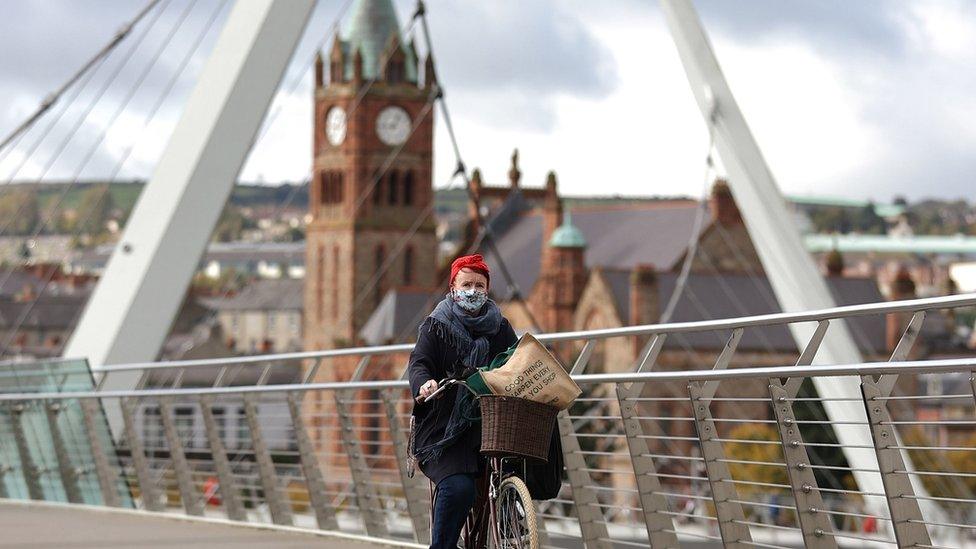
The Derry City and Strabane council area had the UK's highest coronavirus infection rate for a time in October
At present, County Donegal has the Republic's highest 14-day incidence of the virus. Its 231 cases per 100,000 is double the national rate.
Last month, the neighbouring Derry City and Strabane District Council area had, for a time, the highest Covid-19 infection rate per 100,000 population in the UK.
Prof Sam McConkey, an infectious disease specialist with the Royal College of Surgeons in Ireland, said "getting a unified policy" to tackle the virus on an island-wide basis has proven to be challenging.
"This lack of a longer-term vision, lack of bigger picture strategic thinking is paralysing both north and south and making us reactive," he said.
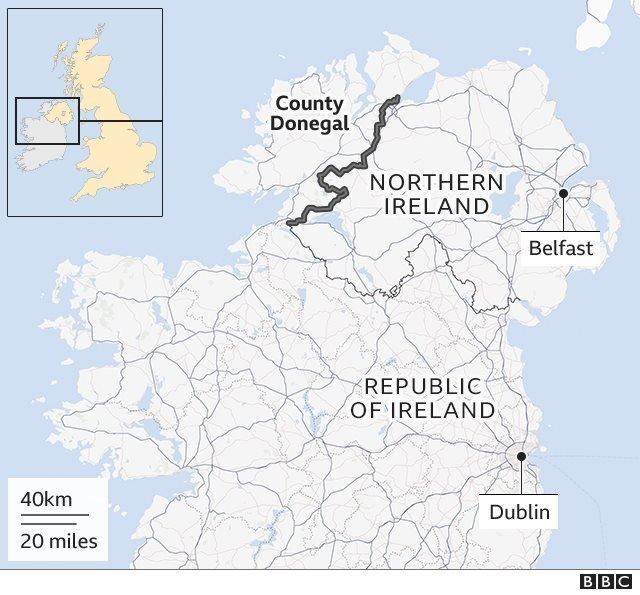
County Donegal currently has the Republic's highest 14-day incidence of the virus
At present, different public health measures are in place in each jurisdiction.
Cafes and close contact services are allowed to open in NI while they remain closed in the Republic.
The Irish government is to review current measures later this week while in NI, a two-week period of tougher Covid-19 lockdown measures come into force on Friday.
That could see measures eased in the Republic at a time when they are tightened in NI.
Medical leaders on both sides of the border say cross-border efforts need improving.
"Simple logic tells you we should be co-ordinating our efforts better across the border," Dr Tom Black of the British Medical Association (BMA) said.
Dr Denis McCauley of the Irish Medical Organisation called for better co-ordination and aligning of public health measures.
'Similar approaches'
Both governments said a co-ordinated approach is in place at present.
NI's Department of Health (DoH) said that "includes the sharing of intelligence and information on a range of issues, including border areas".
"There is regular contact between the two chief medical officers (CMOs), including a weekly meeting of senior health officials chaired by the two CMOs as well as other discussions, where required," a DoH spokesperson said.
The Republic's Department of Health said the administrations "are seeking to adopt similar approaches, where it is appropriate to do so and on the advice of respective Chief Medical Officers".
- Published24 July 2020
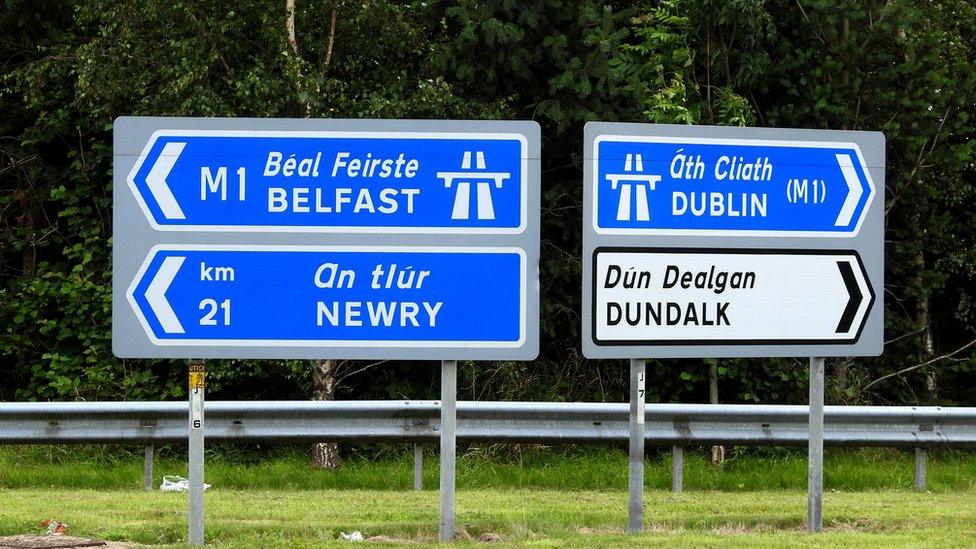
- Published20 November 2020
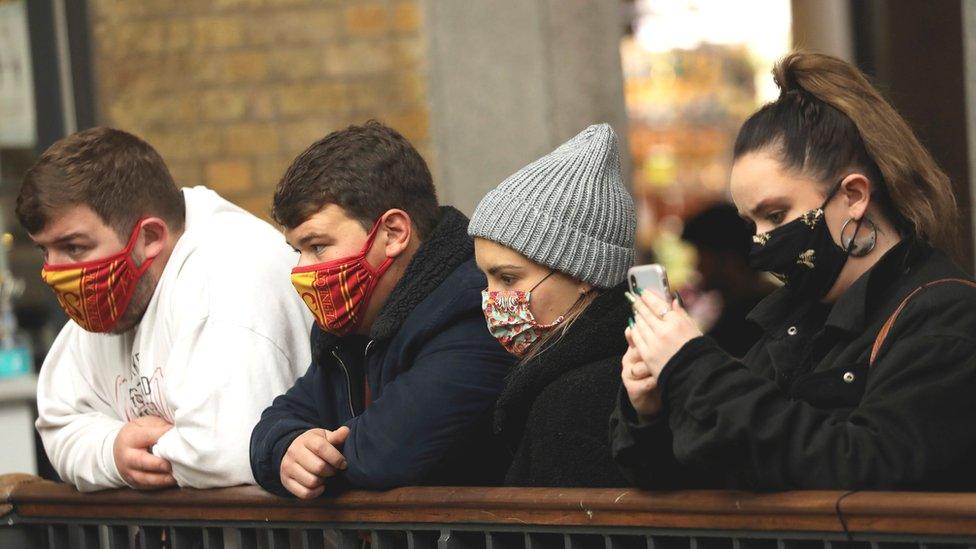
- Published11 October 2020

- Published24 September 2020
